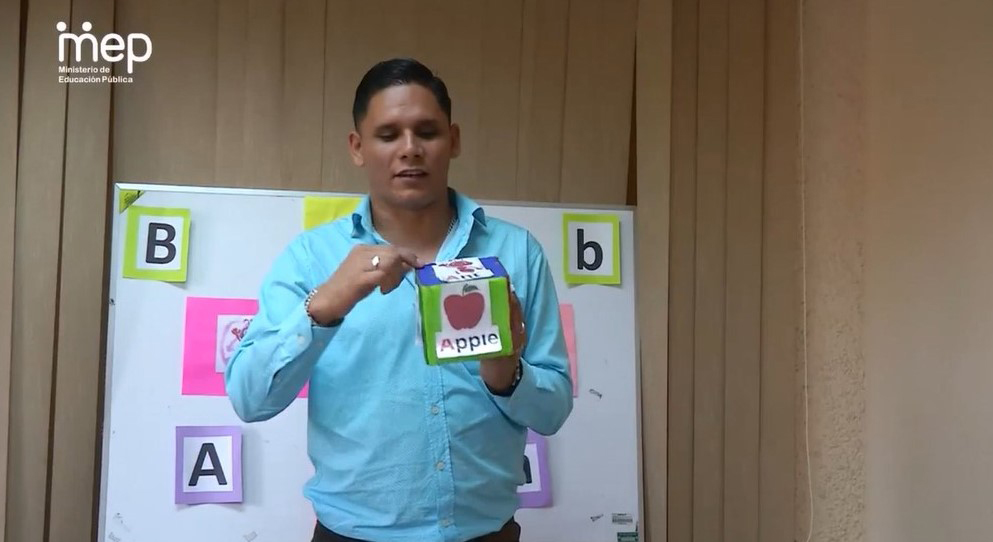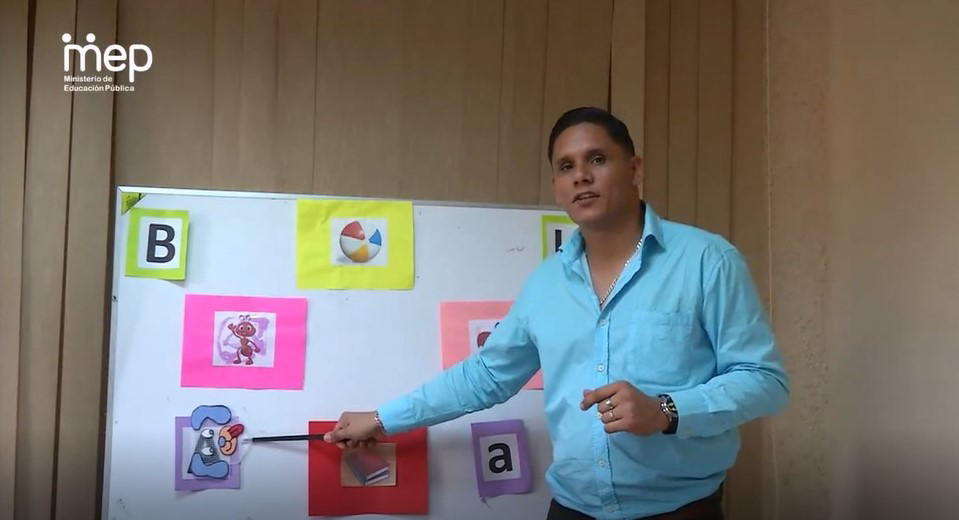The moment when I realized what teaching is all about took place when I was working at La Escuela La Inmaculada in Quepos, with a blind first-grader. Despite his situation, he learned some English vocabulary. We enjoyed the classes so much that I got interested in Braille, and we developed geometric figures and numbers with foam. Today I work with three student communities with very different contexts, and I have once again needed to adapt the classes to their needs.
Over years as a teacher, it’s impossible not to notice the changes our educational systems have experienced in terms of the methods and strategies used to transmit knowledge. It’s been said very frequently that today’s student community has a built-in chip that allows them to be more critical and independent, the creators of their own knowledge.
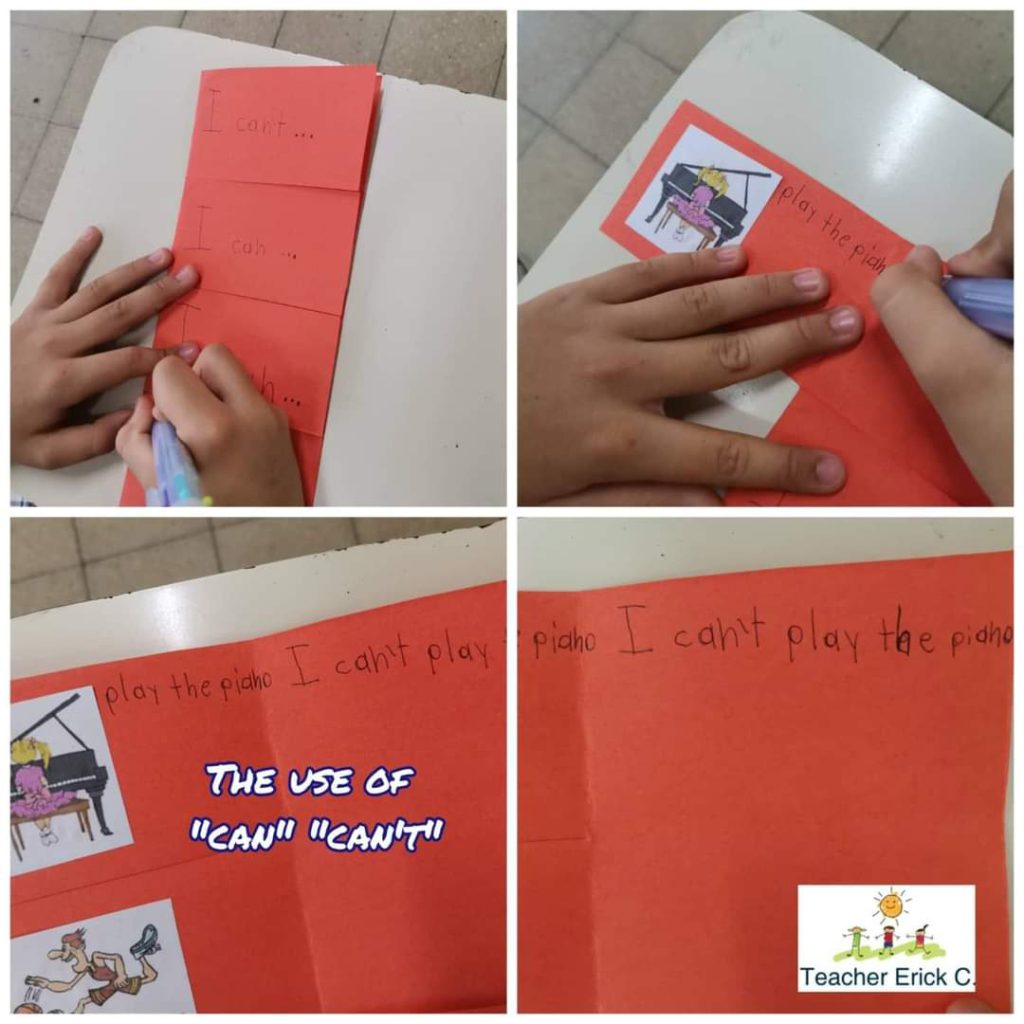
Technology has been an important part of this change. It’s essential to create more interactive classes using educational tools that attract the attention of students through games and activities, so they can learn and put what they have learned into practice. Students do not want to work with books or grammar texts where they are taught as if they themselves were instructors. The idea is to work on grammar and other topics while immersed in real situations where students can use the language in the required context. That’s why it’s so important to look for interactive tools that allow students to learn by playing, regardless of their level.
What happens if your school doesn’t have the necessary resources for the implementation of these tools? There’s always something to be done. The important thing is to capture the attention of the students.
In my case, I really like activities—tic tac toe, for example—where the material for the activities can be made with cardboard. They’re simple, but offer the students a different experience.
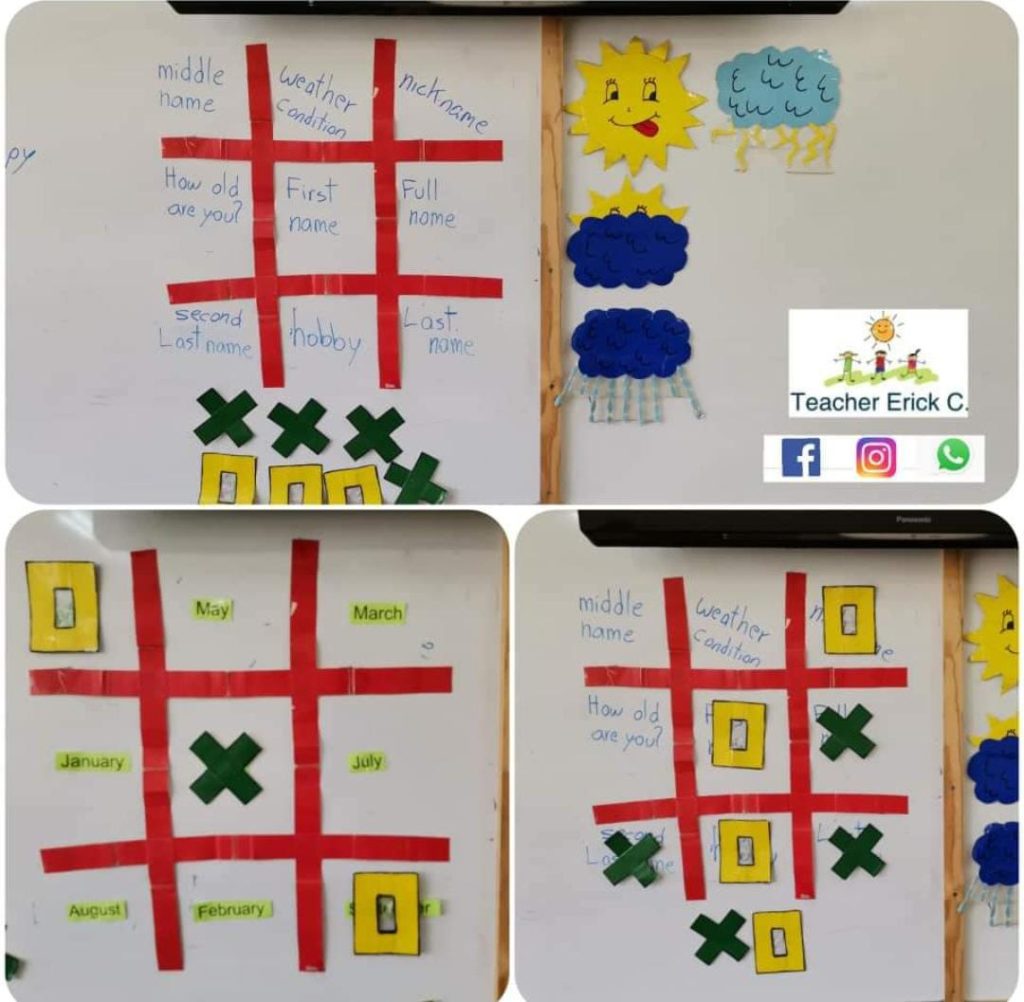
Creativity must start at home
But teachers cannot do it alone. It’s very important for parents and guardians to get involved in the learning process. In my experience as a teacher—and it’s especially clear in primary school parents are always willing to collaborate. Everyone can make the learning process their responsibility.
I’ve found that one way to encourage this involvement is through the implementation of mini-projects for each unit of the English program that become a bridge of communication between the family, students, and teachers.
In 2016, with the implementation of new English programs that focused on phonetics, I designed The Magic Box as part of a mini-project. This tool helps students constantly review English sounds so that they are not forgotten. The game involves parents in the learning process, which is fundamental for the student.
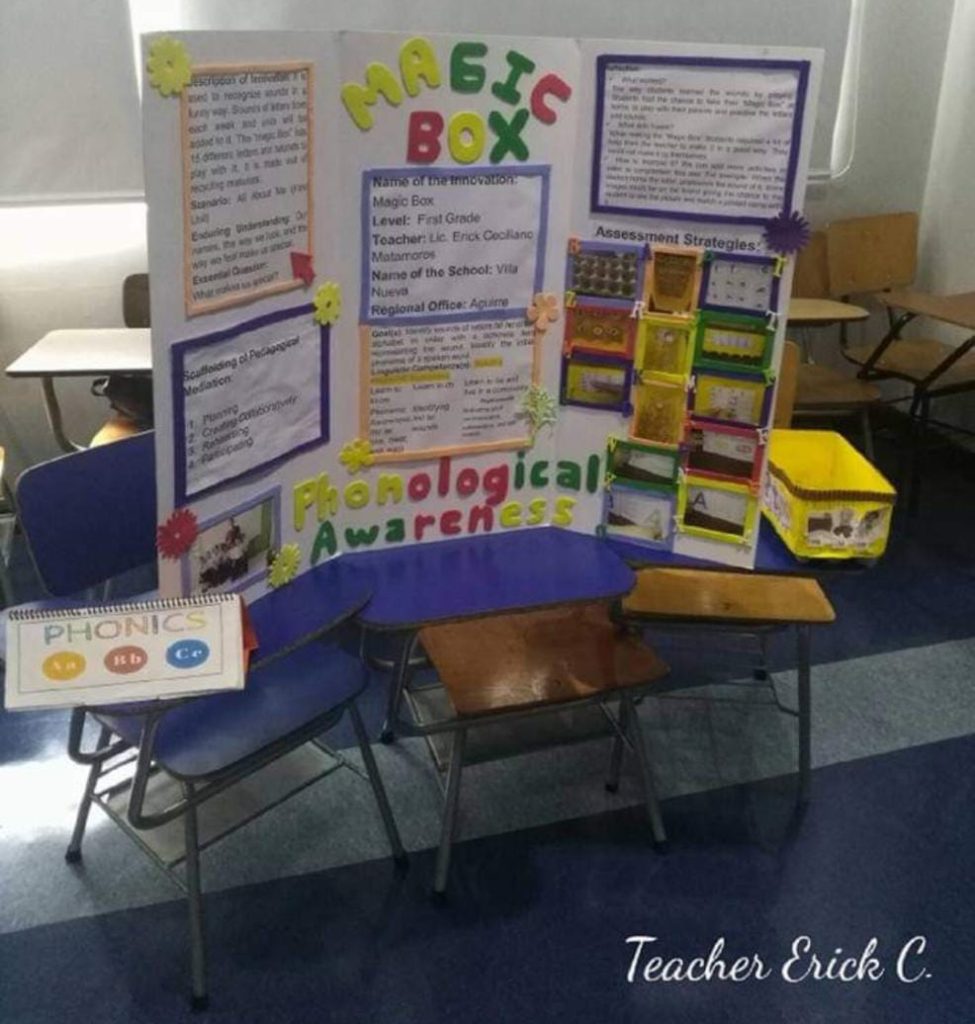
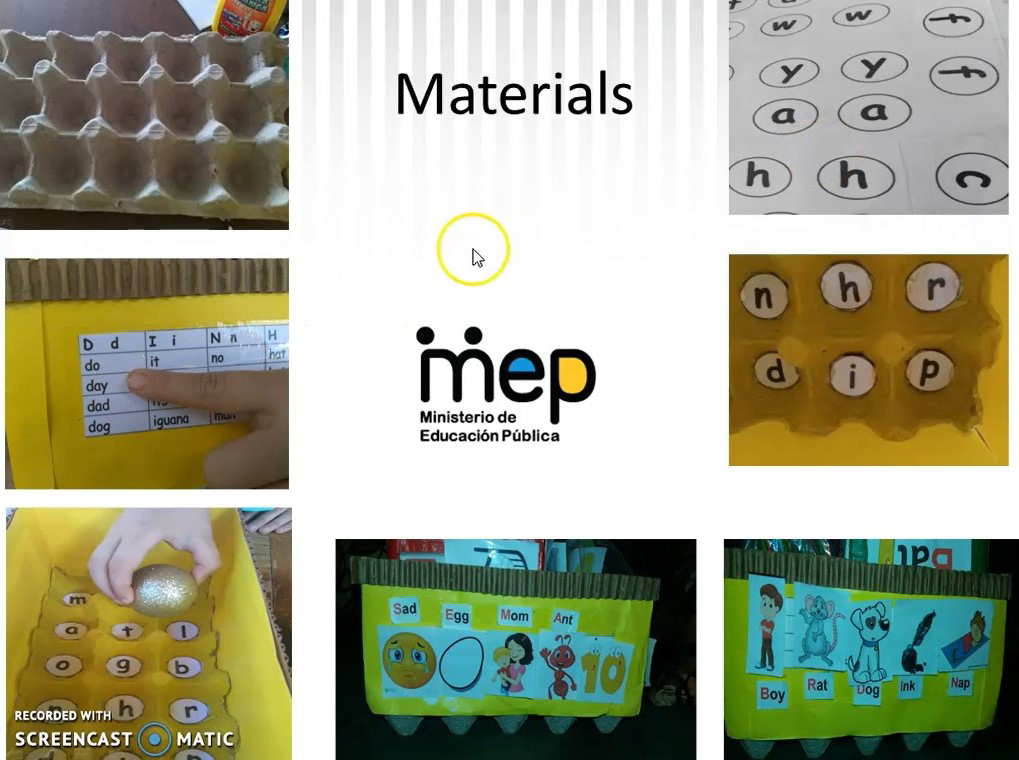
When I’ve implemented mini-projects in collaboration with parents, they have been well received. Parents like to be taken into account. It’s also so important for students to develop their projects, take it home, and teach their parents how it works. And why not take advantage of playing and having fun with the family? Some of the mini-projects I’ve done aside from The Magic Box are Sound Dice, Word Scramble, and a Phonics Book. All of them were created with recycled material.
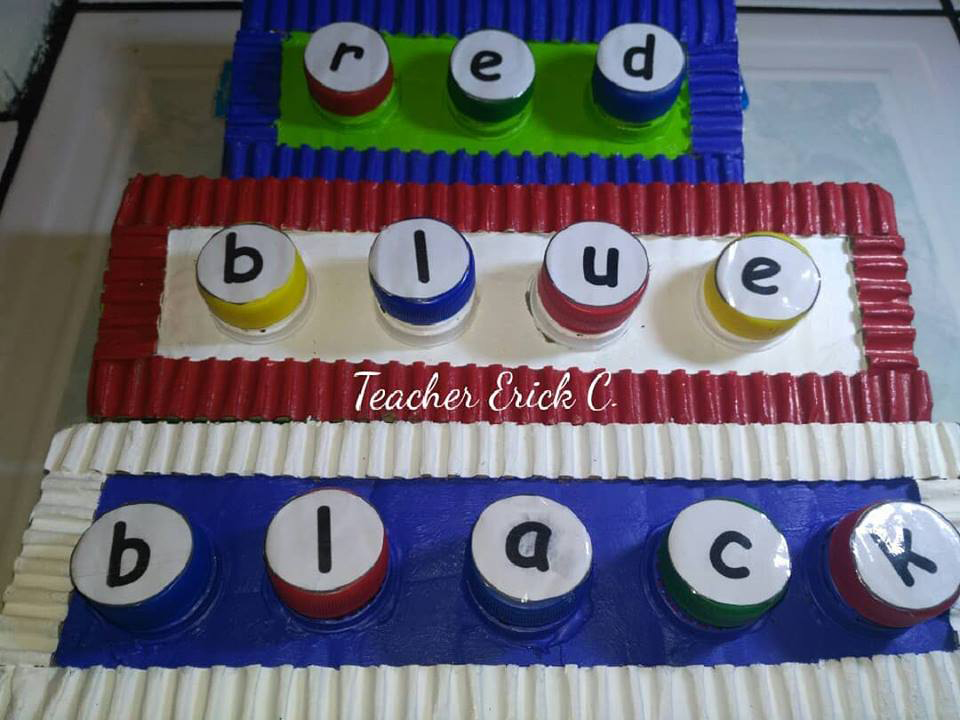
Another recommendation for parents and families is to review with the students daily; with little ones, you can review using drawings and illustrations. Maintaining constant communication between teachers and parents is also very important. That way, the teacher can provide links, pages, apps or other means for the family and student to enrich learning from home, and be supported through the use of technology.
Something that I have learned when doing my virtual classes, both within the Ministry of Public Education (MEP) and in private classes, is the variety of resources that we can find on the internet such as apps and educational platforms. These online practices can help improve language learning with extra practices for students to do with parents.
One resource that I use a lot is called Live Worksheets. On this page you can find many interactive activities for all ages, as well as different themes and in various languages.
Online tools like this one are multifaceted. Students are using a smart device, thus acquiring skills that are very important these days, but also reviewing what’s been taught in class in an interactive way through games, reading, ordering words, sentences, and responding through audios. Parents can keep an eye on student performance and—why not?—assess their own knowledge with the student to make it more fun.
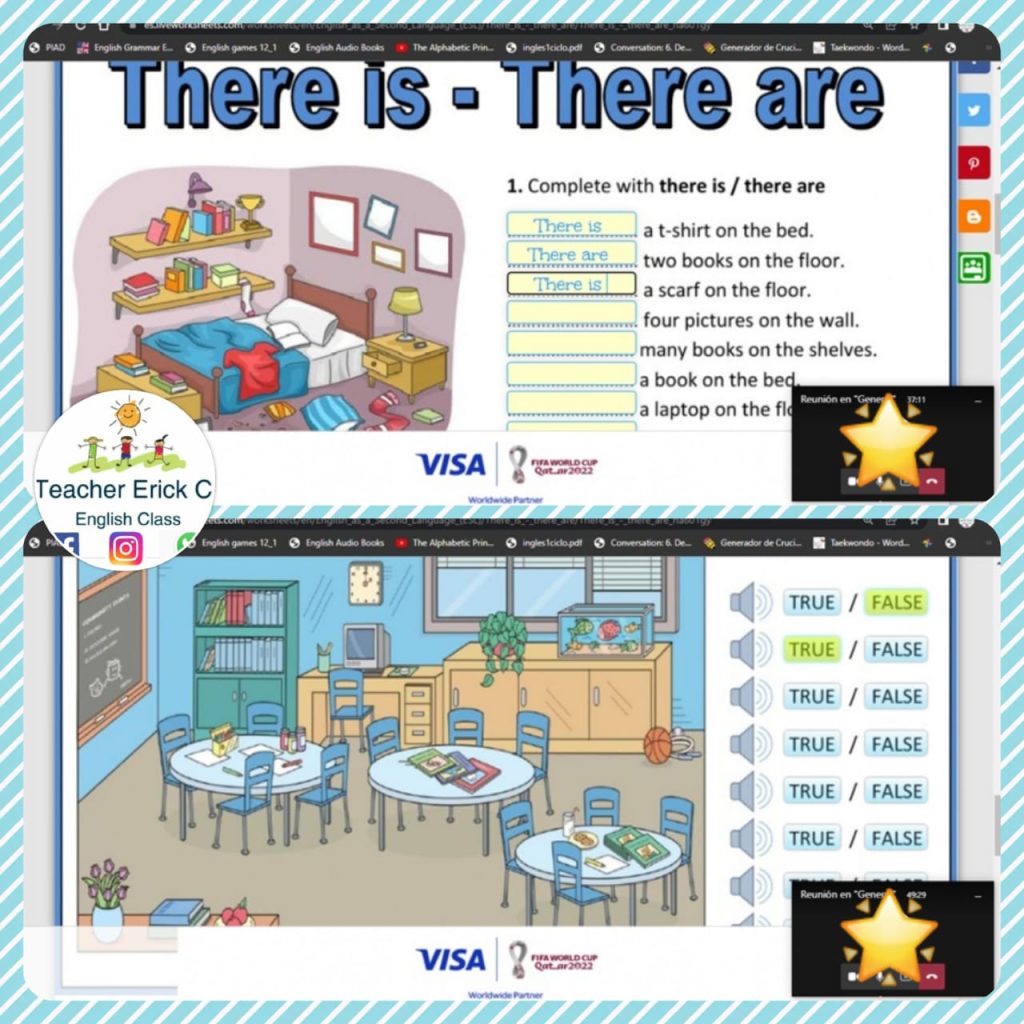
When I teach virtually, I use this resource so students practice topics from class, sharing the screen so I can see what they’re doing. That way, I can correct them or congratulate them on their performance. This makes being evaluated more fun and interactive.
In 2018, I created Facebook and Instagram accounts to share posts relevant to the English language. These cover vocabulary, photos of my projects, information on events such as English festivals, and something that has helped me expand my own knowledge about vocabulary: idioms. The comments of my followers show that they enjoy the posts, which are widely viewed and sometimes downloaded.
As a teacher, I’ve learned to improve both personally and professionally each year. I know that the challenge before me is to remain up to date on methods and strategies that provide an attractive class for students.
If both parents and teachers alike can stay updated and involved, we have the power to make a big change.
